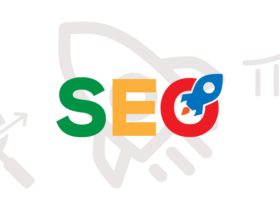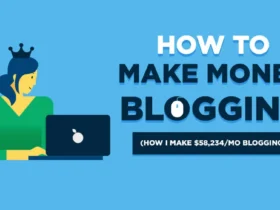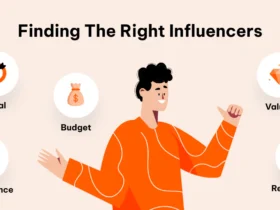Small businesses looking to get ahead in a saturated digital landscape are faced with mounting challenges, especially when it comes to establishing their online presence and creating traffic for traffic. If you want your small business to be discovered when potential customers hit up Google, Bing, or Yahoo search engines then SEO (Search Engine Optimization) is for you. In this article we will explore fundamental insights into the importance of SEO for small business, its impact on growth as well as best practices to follow.
Increased Visibility on Search Engines
SEO is all about making a website visible on search engines. This is crucial for small businesses, as it levels the playing field against larger companies. The higher a business ranks on search engine result pages (SERPs), the more likely they are to attract clicks and visits. The first five organic search results attract almost 68% of all clicks, according to research. Focusing on search can enable local small businesses to become visible to people searching for matching keywords.
A local bakery that ranks on the first page for a keyword such as “best bakery near me” or “fresh pastries,” is more likely to generate foot traffic than another that ranks on pages two, three. With SEO, small businesses can leverage this prime online real estate and be discovered by people already looking for their products and services.
Building Brand Credibility and Trust
People trust the businesses that show up at the top page of search results. Getting a top search is an indication of a credible and trustworthy business in the eyes of the user. Investing in SEO helps small businesses gain brand trust and reliability with the passage of time as their business keeps appearing in relevant searches.
In addition, SEO consists of writing good content, getting backlinks from reputable sites, and providing a user-friendly and secure site. All of these factors improve search engine rankings and are also areas that will build trust with the people who visit your site. People are more likely to convert and become long-term customers if they have a positive experience on your website, which means it performs quickly and intuitively while providing relevant information.
Cost-Effective Marketing Strategy
What they read: SEO has one of the highest ROI in marketing, making it one of the best marketing strategies for small businesses with limited marketing budgets. When it comes to advertising, paid advertisement will benefit you only if you are putting the money into it, but SEO is ongoing organic traffic which does not require attaching a pocket to recharge optimizations.
Also Read
Hiring an SEO expert or agency may cost you upfront, however the long-term value of organic traffic makes it a more scalable growth strategy for small brands. Eventually, the more your site grows in authority and close to where you want to be on the SERP for desired keywords, you will have a constant stream of free traffic instead of always paying for ads.
Furthermore, compared to other types of digital marketing, SEO also has a better ROI because organic traffic converts at a higher level than the paid one. Organic search visitors tend to have sick engagement and are most likely to purchase from or inquire about your services.
Targeted Traffic and Higher Conversion Rates
The beauty of SEO is that it enables small businesses to bring in targeted traffic through optimization on helpful keywords and phrases related to your products or services. Traditional advertising is designed to reach large audiences, while SEO delivers your site to people who are looking for solutions for their needs.
So, if a search query is “cheap accounting services for small business,” the user probably requires accounting services immediately. And if your business shows up high on the results for that keyword, then there is a higher likelihood of that user engaging with you and becoming a customer.
Another aspect of the advantage of SEO is that it offers local targeting opportunities, which is a must for small businesses with physical locations. Businesses can appeal to local customers by dominating local search queries and layering on a little local SEO charm by claiming and optimizing your GMB (Google My Business) profile. We think this is especially crucial lately, given the growing number of “near me” searches and consumers using their smartphones to help them find local businesses.
Improving User Experience
One of the critical pieces of SEO is optimizing your UX. Websites that offer fast loading speeds, mobile responsiveness, and a seamless browsing experience are prioritized more highly in search engines such as Google. Local Businesses that spend their effort in making their website more functional will not only receive higher ranks but also provide positive experiences for the users.
Good SEO practices involve
- Fast loading times: Research suggests that if a website takes longer than three seconds to load, user bounce rates are likely to increase significantly.
- Mobile optimization: As the mobile device traffic numbers go up and up, it is less of a choice and more of an essential. This is because Google now uses mobile-first indexing so well-optimized mobile sites will rank higher.
- Clear navigation and structure: Your site should allow users to search for information very easily without wasting time. An organized website with a user-friendly navigation keeps the visitors in and they tend to scroll for more.
By focusing on these factors, small businesses not only improve their SEO performance but also create a website that meets their customers’ needs, resulting in better engagement and higher conversion rates.
Staying Competitive in the Market
Neglecting SEO will have small businesses falling behind those with big budgets spending to attract consumers. As the majority of customers use search engines to Discover Products and services so businesses that are not optimizing for Search Engines Miss Out a Major Portion of potential Customers.
WHAT WE DONT: SEO can play a really important part in helping small businesses to stay afloat against competitors and even thrive. If you follow all the best practices of SEO, keep checking on the algorithm every other month or so and tweak your strategy accordingly to compete in your industry. Small businesses who take actions on SEO before the fight will be in a better position to catch customers and scale up their business on the internet.
Measurable Results and Continuous Improvement
SEO is one of the most measurable disciplines out there. With Google Analytics, Google Search Console, and other SEO tools you can get an idea of how well your website does, which keywords drive traffic to it and which areas need improvements.
They enable small enterprises to monitor key metrics, such as:
- Organic Traffic: The amount of visitors to your site from search engines.
- Bounce rate: the percentage of visitors that leave your site after viewing only a single page.
- Conversion rate: The share of visitors that take the desired action, like buying your product or completing a contact form
- Keyword rankings: The place your website maintains for certain keywords through the years.
These metrics allow small businesses to assess and continually adjust their SEO strategy for optimal performance. For instance, if you notice that a certain keyword is bringing in a ton of traffic but converting poorly, you can tweak your content or call-to-action accordingly to increase conversions.
Adapting to Changing Consumer Behavior
Over the past few years, consumer behavior has changed significantly with the increasing reliance on search engines to gather information, compare products and make purchases. And it makes SEO all the more important for small businesses looking to meet their customers where they are.
SEO is not a one-time effort. Search engine algorithms are always changing, and business need to adapt to these changes to remain the relevant player. Small businesses that embrace SEO and constantly track and evolve their efforts will have the upper hand in this ever-changing digital landscape.
Ultimately, SEO can be a game changer for small businesses by giving them the visibility they need to get attention and find their niche in the digital space. Small businesses can benefit tremendously in the long run from search engine optimization by becoming increasingly visible online, bringing in customers, and increasing sales. No matter if you are a beginner or an advanced professional, SEO will always be one of the components of a successful digital marketing plan.
SEO can help small businesses reach their full potential and there has a lot of best practices that contributes such as relevant keywords, better user experience and focusing more on local customers.

















Leave a Reply